July 2018 Culture and Society
Read the articles selected in July 2018
L’air conditionné à l’assaut de la planète
By Benoît Bréville
Source: Le Monde Diplomatique, August 2017
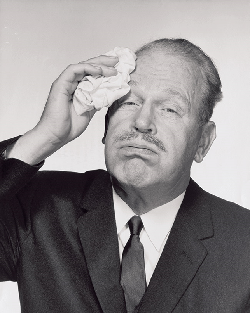
Invented at the beginning of the XXth century for industrial use, the air conditioning has changed styles of life and architectural landscapes. Promoted by public authorities because it improves productivity, like every technology it has become indispensable, despite its environmental impact.
Read more:
https://www.monde-diplomatique.fr/2017/08/BREVILLE/57768
Sergio Marchionne s’en va, l’Italie salue un patron star
By Antonino Galofaro
Source: Le Temps, 26 July
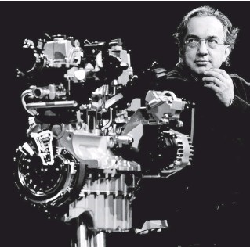
The most intense critics haven’t spared him, yet in the facts, with determination and creativity, Sergio Marchionne has subtracted an essential piece of the Italian industry to bankruptcy, saving many jobs and experimenting new ways to run a business.
Leer literatura puede ser literatura
By Manuel Vilas
Source: El País, 21 July
El derecho a escribir mal is an anthology of essays written by an eminent American literary critic about thirteen masterpieces of the world literature, that makes the critics an independent genre and express a humanistic sensibility and wisdom which used to create literature without Internet support.
China’s belt-and-road plans are to be welcomed – and worried about
Source: The Economist, 26 July
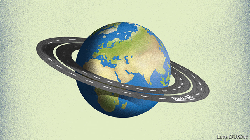
Differently from the routes of ancient “silk roads”, Xi Jinping’s Belt and Road Initiative is a global project, made up of infrastructures to spread Chinese wealth and prosperity. Although several countries can join and benefit from it, the expanding aim of the Chinese giant raises concerns.
Read more:
Den Völkermördern entegegenarbeitet?
By Kaveh Nassirin
Source: Frankfurter Allgemeine, 15 July

A forgotten historic document proves Martin Heidegger’s participation from 1934 to the Akademie für Deutsches Recht, which had the task to elaborate and legitimate the racial Nuremberg’s laws.
Read more:
A grammatical analysis of Donald Trump’s double negatives
Source: The Economist, 18 July
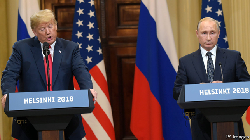
Sometimes the context of a phrase is not enough to understand the sense of a phrase. Even in the written language it not rarely happens that a misnegation thrown in a complex sentence overturns the meaning of a statement.
Read more:
Kubrick avant Kubrick
By Didier Jakob
Source: L’Obs, 12 July

Stanley Kubrick’s juvenile formation is documented in the images, now collected in an album and in an exposition in New York and made for the magazine Look before to shifting to the cinema with an exhaustive power, able to transform a shot in a narrative sequence.
“El problema está en confundir la gramática con el machismo”
By Iker Seisdedos
Source: El País, 16 July
After the director of the Real Academia Española, the language including the gender diversity is a political imposition, a change created at the table and not from the society. A doubling which doesn’t meet the principle of the linguistic selection and economy.
Wenn di Daten fehlen, bleibt die Metaphysik
By Sibylle Anderl
Source: Die Faz, 10 July
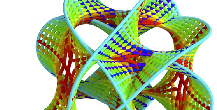
The physics of the Universe is a still unresolved puzzle. Many problems of the contemporary cosmology coincide with the fundamental questions of philosophy. A workshop organized by the University Western Ontario intends to lay the foundations for a continuous interdisciplinary dialogue between physics and metaphysics.
Read more:
Jakobson et Lévi-Strauss, lettres et les géants
By Philippe Lançon
Source: Libération, 12 July
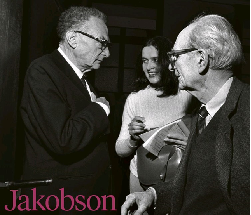
The correspondence through forty years between Roman Jakobson and Claude Lévi-Strauss follows the development of the structuralism from the intersection of linguistics and anthropology in the search for invariant forms through the diversity of languages and human societies, highlighting a common poetic and scientific passion.
Découvertes estivales
By Alexandre Demidoff
Source: Le Temps, 11 July
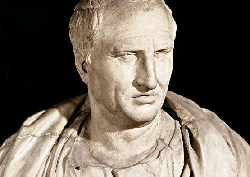
In the University of Lausanne, rhetoric is being discovered as the art of the word and the plastic of emotions. The students, future lawyers or literature teachers, practice in the composition of discourses formulated through the technique of Cicero and Quintilianus.
Saramago: diario del año del Nobel
By Javier Martín Del Barrio
Source: El País, 9 July
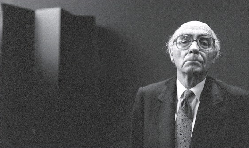
Already announced in the epilogue of the fifth Quaderno de Lanzarote, the sixth and last, casually just discovered by his widow and translator navigating among the briefcases of his computer, is going to be published for the first international congress on Saramago, taking place in Coimbra next October.
Freiheit für das kulturelle Welterbe
By Gerhard Lauer
Source: Der Tagesspiegel, 5 July
The modern civilization has been grafted on the field of human rights. If culture is a heritage of the whole of mankind, all people are equal. The digitalization of the known risks to impoverishing our tradition, if we don’t safeguard the right and the capacity to critique against any manipulation.
Les virus géants réécrivent l’histoire du vivant
By Paul Molga
Source: Les Echos, 2 July
The discovery of three new giant viruses, whose genetic patrimony is rich and differentiated, will change the description of the living world. From the presence of genes until now considered exclusively cellular, appears a co-evolution’s system stemming from various kinds of life.
“Tout Internet est un texte de Roland Barthes”
By Frédérique Roussel
Source: Libération, 5 July
The Internet has made us all writers. But our “uncreative writing” is deeply influenced by the digital platforms. Otherwise, it has been the literature to drive us to the digital experience. On these shores, with the death of the author and the masterpiece, creativity has been reborn.
Une histoire de la dissection
By Sylvie Logean
Source: Le Temps, 3 July
Considered from the 18° century as a fundamental teaching for medicine’s students, the dissection of corpses is counted among the subjects on the brink of extinction, in an era when nothing of the human body seems still unknown.
Sizilien sehen und leben
By Nicola Kuhn
Source: Der Tagesspiegel, 25 June
Manifesta, the migrant artistic Biennal of Europe woken up from the Iron Curtain, arrives at Palermo, a living example of multi-cultural coexistence and wealth. Between the wars of the Mafia and the NATO’s platforms, the beauty of this city seems to withstand everything.
“La medicina del siglo XXI tiene que salir del hospital”
By Ana Macpherson
Source: La Vanguardia, 17 June
In the future, the hospitals won’t be long the place for the cure of many patients. The medicine is destinated to move to the patient’s home and a deep transformation in the approach to the person. The healthcare must reduce costs to make the most modern treatments accessible to all.
Los ensayos que muestran en qué piensa Europa
Source: El País, 24 June
What does it read Europe? The European identity is differently reflected in its Member countries, each one handling with a piece of its history. The books printed in its nationalities’ tongues tell the anxieties and the complex of the intellectual class borne from a continent so variegated as much so tormented by the same crisis.
L’atelier du sculpteur renaît dans un musée à Paris
By Valérie Duponchelle
Source: Le Figaro, 23 June
In Paris, the just inaugurated Institute Giacometti, through the precise reconstruction of the artist’s atelier restores the city with part of its history, made not only of objects and works, here presented also in temporary exhibitions, but also of friendships and relationships.
Info
- Pubblicato il : 10/09/2018 Modificato il : 04/04/2019
Allegati
- Sergio Marchionne s’en va, l’Italie salue un patron star pdf
- Leer literatura puede ser literatura pdf
- “El problema está en confundir la gramática con el machismo” pdf
- Kubrick avant Kubrick pdf
- Saramago: diario del año del Nobel pdf
- Découvertes estivales pdf
- Jakobson et Lévi-Strauss, lettres et les géants pdf
- Une histoire de la dissection pdf
- Tout Internet est un texte de Roland Barthes pdf
- Les virus géants réécrivent l'histoire du vivant pdf
- Freiheit fuer das kulturelle Welterbe pdf
- L'atelier de Giacometti pdf
- En qué piensa Europa pdf
- La medicina del siglo XXI pdf
- Sizilien sehen und leben pdf

